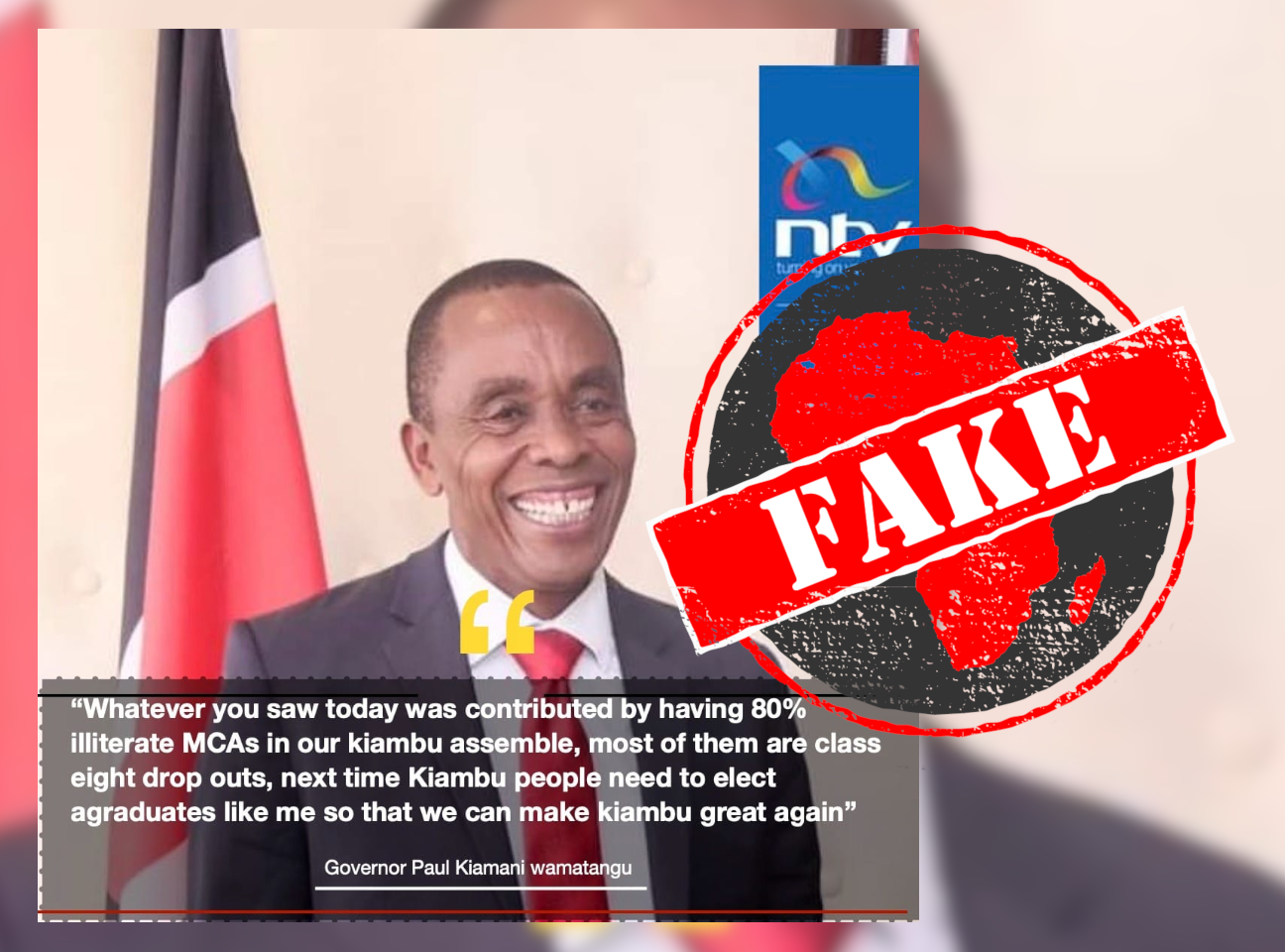IN SHORT: A poorly written quote in which Kiambu governor Kimani Wamatangi appears to rail against his opponents in the county assembly, calling them “illiterate”, is entirely made up.
A graphic going viral on social media in January 2023 attributes a controversial quote to Kimani Wamatangi, governor of Kenya’s Kiambu county.
It reads: “Whatever you saw today was contributed by having 80% illiterate MCAs in our kiambu assemble, most of them are class eight drop outs, next time Kiambu people need to elect agraduates like me so that we can make kiambu great again.”
MCA stands for member of the county assembly. Each of Kenya’s 47 counties is governed by its own assembly.
In Kenya, class eight is the final class in primary school, before secondary school.
The quote appears to target Kiambu county MCAs who protested against and threatened to impeach the governor on 9 January. They claimed he was sidelining them in the running of county affairs.
Kenya’s constitution allows MCAs to file a motion of impeachment against a governor.
The graphic carries the logo of the TV station NTV Kenya.
It has been posted here, here, here, here, here, here and here.
But is it legit? We checked.

Graphic fake, quote made up
A county governor would be unlikely to issue a statement with the poor spelling, punctuation and grammar seen in the graphic.
And it’s also unlikely that a governor would make such reckless public remarks about MCAs – and further risk impeachment.
The graphic can’t be found on the NTV Kenya’s Facebook and Twitter accounts. And it’s nowhere to be seen on the governor’s Facebook and Twitter pages.
NTV Kenya has posted the graphic on Facebook, stamped “fake”.
“Beware of fake news! If it's not on our official social media pages, it's fake,” it wrote.
There is no evidence Wamatangi said anything like this, or that any other media house quoted him as saying it.
Republish our content for free
For publishers: what to do if your post is rated false
A fact-checker has rated your Facebook or Instagram post as “false”, “altered”, “partly false” or “missing context”. This could have serious consequences. What do you do?
Click on our guide for the steps you should follow.
Publishers guideAfrica Check teams up with Facebook
Africa Check is a partner in Meta's third-party fact-checking programme to help stop the spread of false information on social media.
The content we rate as “false” will be downgraded on Facebook and Instagram. This means fewer people will see it.
You can also help identify false information on Facebook. This guide explains how.


Add new comment